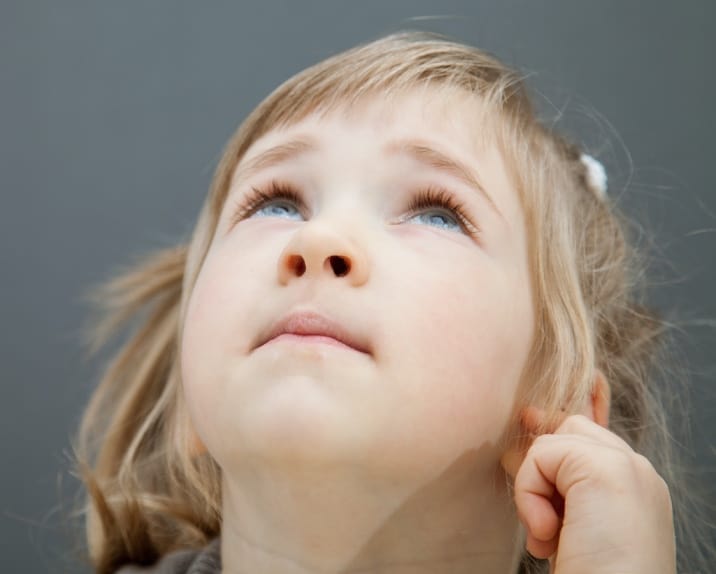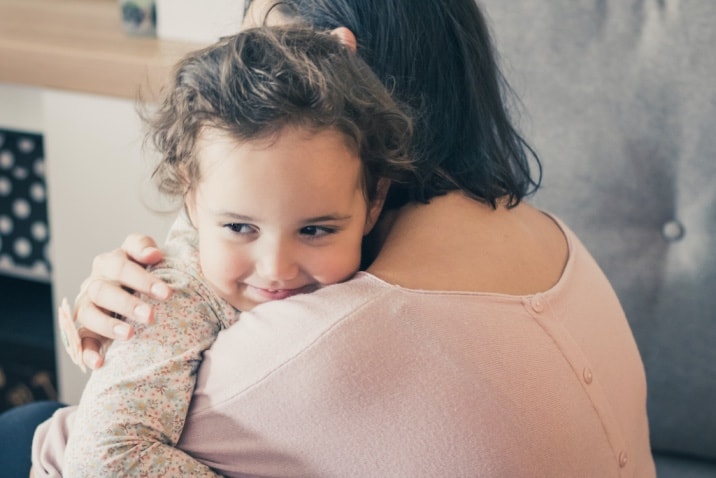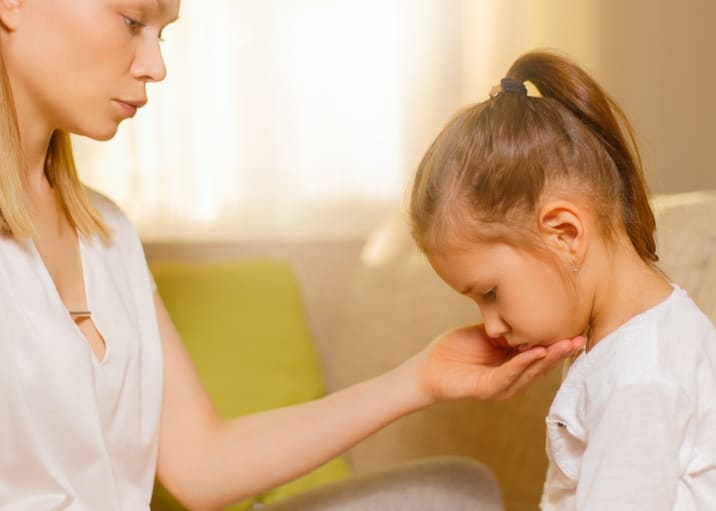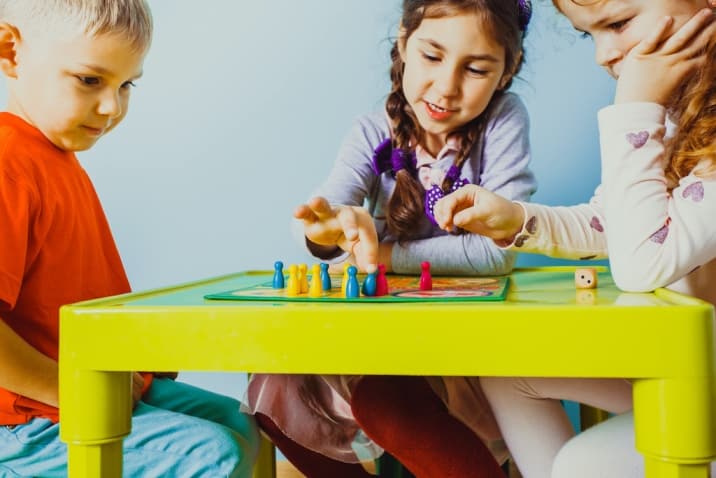The way we react to the emotions of kids has a big impact on their emotional intelligence.
Emotional intelligence (EI), otherwise known as Emotional Quotient, is the ability to understand, manage and regulate emotions.
Along with understanding and managing one’s own emotions, EI includes the ability to understand and interpret other people’s emotions too. Since we are social beings, it’s important to have the ability to understand what people around us are feeling too.
WHY IS DEVELOPING EMOTIONAL INTELLIGENCE IN KIDS IMPORTANT?
Some people are born with good emotional intelligence. But research shows that people with average EQ can do as well as others by learning and practicing it.
Emotional Intelligence can be gained and improved at any point in life (Goleman, 2014).
Having good emotional intelligence skills is important because
- Kids need to develop self-awareness when it comes to their emotions. They are able to understand what emotions they are feeling.
- If given the right training, they can regulate their emotions and think about the consequences of expressing them to others inappropriately. They learn to act or react according to the situation.
- They learn how to express their emotions properly and learn to manage and calm down when they feel big intense emotions.
- They are able to understand the feelings of others and express empathy. It also helps them to act in tune with the emotions of others. It is necessary to gauge the situation to create a response appropriate for the situation. For example: Giving emotional space and not nagging when dad is angry. It can happen only when they can link others’ emotions to their reactions.
- They are able to make good decisions when they are emotionally intelligent because they are better aware of their own needs and others’ needs.
- Low emotional intelligence can lead to mental health problems, as studies show that people with mental disorders have low emotional intelligence.
Now that we know the importance of developing good emotional intelligence, the earlier we can give training to kids, the better.

So how can we teach good emotional regulation skills to kids?
1. TEACH AWARENESS
The first step in making any change or progress in life is being aware of a problem. Here, in order to teach good emotional skills, parents can teach kids about various emotions from a young age.
From a young age, name kids’ emotions when they express them.
When kids enter toddlerhood, they start experiencing different emotions, and it is one of the reasons they throw tantrums as they don’t know to deal with them.
In such moments, you can name their emotions like,
“Oh, you are so mad right now”,
“You are so frustrated”
“You are so excited”, etc.
You can also point out other people’s emotions or your own, in different emotions.
For eg,
“Mommy is feeling overwhelmed and frustrated right now”
This further helps them to connect emotions with people’s facial expressions and body language.
And also, it helps in creating awareness about the emotions they are feeling in the moment. And they start to connect different events with associated emotions.
Now, if your kids are older and you didn’t get a chance to do it when they were young, you can still express empathy now, by acknowledging their emotions.
Naming their emotions help children to feel validated and seen.
2. SHOW EMPATHY
The importance of empathy in parenting can never be overstressed.
The empathy received from parents or other caregivers can be directly proportional to helping kids manage their emotions well.
Kids become defiant and throw outbursts when they do not feel understood.
But when we show empathy by saying, “Oh I know you would like to spend more time watching TV and don’t want to study now, that’s how I feel sometimes about work too”, they feel more understood.
But when we deny their emotions right away, they express them in various ways including anger, or other aggressive ways.
Even one of the reasons for sibling rivalry can be the frustration they feel inside due to unvalidated emotions. It’s easier to take them out on siblings who are weaker compared to authority figures.
So when you empathize and show understanding, they don’t feel the need to show it in other ways.

3. TEACH SELF-REGULATION STRATEGIES
I think growing up, many of us were not taught how to manage big emotions. Even though aggressive behaviours were discouraged, alternate regulatory methods were not taught.
Luckily, we have so many resources today that help kids develop self-regulation strategies.
Kids learn so much about self-regulation from watching others. Their abilities to regulate emotions also depend on their temperament. Temperament is the mood pattern of a person.
If you have more than one child, you may observe that one may be more prone to anxiety and anger, while the other may be more on the calmer side.
But teaching self-regulation strategies can help any child.
Self-regulation is about controlling your thoughts, impulses and behaviour for the sake of achieving a higher goal. Emotional self-regulation is required to manage disruptive impulses in order to have better relationships and meet one’s own personal development goals.
So the first step in teaching kids self-regulation is to make them understand why it is important to regulate their emotions.
Teach kids what socially acceptable behaviour is in a language they can understand so that they can have good relationships with other people.
For example, saying things like,
“When you go on playdates, remember to take turns. Imagine how happy Tom will be to play with you when you give him a turn to play!”.
Such statements help them consider others’ emotions too.
OR
“I know you would like to finish this puzzle right now. But now mommy is busy. Can you wait twenty minutes for me to finish this and then we can bake the cake?”
Here the reward for waiting is baking the cake together and for that, he needs to wait.
Another example:
“I can imagine how angry you are at Sandra for snatching your toy. Nobody would like that. But do you think hitting can solve it? It only hurts people and makes them more upset with you. You may feel bad about it later. What about using words to say how you feel?”
When we explain the results of destructive impulsive actions, they can start to understand why acting on negative impulses is not a good idea.
But, they still need to be taught strategies to self-regulate. Read on to find out more strategies to teach emotional regulation to kids.
4. HELP THEM DEVELOP PATIENCE
Involve kids in activities that require patience like crafts, puzzles, growing a plant, learning a song/dance by heart, board games, etc.
Doing crafts is a good idea as it helps them to go through the activity patiently until they reach the end result and also deal with minor mistakes and frustrations that happen while doing the crafts. This teaches patience required to wait till they get the end result.
The same can be said about games. They wait for their turn, learn to co-operate with others and learn to deal with the end result of the game, be it winning or losing.
5. HELP THEM WHEN THEY LOSE CONTROL
Each child is different and each of them has different capacities when it comes to regulating their emotions. So while they seem out of control, a little bit of help in the form of reminders can encourage kids to manage their feelings.
In such moments interfere gently and remind them of soothing techniques like taking deep breaths or ask them to go to another room until they are able to cool off.

6. PLAY GAMES TO LEARN SELF-REGULATION
Games are an interesting way to teach self-control to kids. Games teach them to take turns, wait for their turn patiently, teach them to learn with the emotions associated with winning or losing, etc.
For this reason, it’s a good idea to spend quality time with kids playing board games or encourage siblings or cousins to play together.
Creating family rituals where all these activities are involved is also a good way to raise kids who can self-regulate their emotions and behavior.
Related: 15 incredibly fun games to teach self-regulation to kids

7. GIVE THEM DOWNTIME
Kids, whose emotional maturity is poor compared to adults, need a lot of downtime to self-regulate.
Their attention span is short and hence if we keep giving them instructions to do things one after the other, their ability to self-regulate may decline over a day’s duration.
And also, mood changes occur when there are unmet physical needs like hunger, sleep and also emotional needs like love and attention.
Children who usually come home after school can be seen melting down for everything. It’s mainly because they have been forced to behave well and they are also tired by sitting long hours of time without burning energy.
Hence, lower your expectations based on the age of the child and also their day. It’s easier to lose cool on bad days, even for adults.
So make sure their needs are met and that they get enough time to wind down in between activities.

8. TEACH PROBLEM-SOLVING SKILLS
Kids need a lot of training on how to solve conflicts. The first training can be given to siblings amongst whom there is always friction.
Instead of hitting each other, teach them how to use words to speak their mind and their feelings.
And when they are fighting over the same thing, they can be taught to resolve situations by taking turns or sharing.
When they know that there are other ways to solve problems calmly and without losing cool, they will develop self-regulation skills over time.
But do not expect them to implement these skills from day one. A lot of reminders will be needed whenever there are disputes. When there are struggles between kids, you do not need to rush to the situation to solve it.
Wait and see how they do it and only if the situation goes out of hand, they need reminders.
Related: 20 important social skills all kids must learn (and how to teach them)
9. TEACH MINDFULNESS ACTIVITIES
Mindfulness helps kids to improve focus and stay concentrated on the task at hand. It also helps them to self-regulate.
Mindfulness teaches them to observe what’s going on at the moment which is important when we feel emotions.
It helps kids to be aware of their emotions when they come.
This realization helps them to observe the emotion carefully without getting caught in it and react impulsively.
Coupled with additional training in self-soothing techniques, they get enough time between action and reaction which helps in emotional regulation.

10. MODEL THE BEHAVIOR
Children learn a great deal about behaviors from their parents. Kids are always observing the way you deal with conflicts and how you deal with situations that make you angry. Your behavior can teach them a lot.
If you have trouble with self-regulation or anger issues, it will be best to resolve it for yourself and for your family.
FINAL THOUGHTS
When it comes to managing emotions, kids need a lot of support and training. It can be hard and frustrating for parents. But if you stay patient, it will help children develop better emotional management skills that can benefit them for a whole lifetime.
